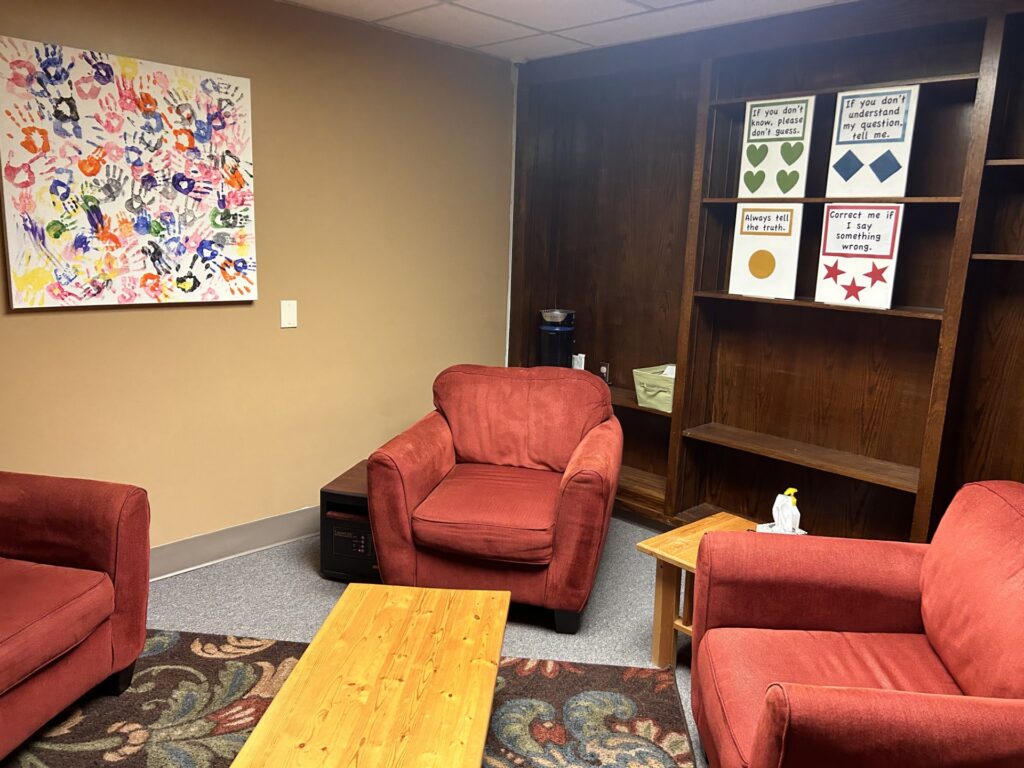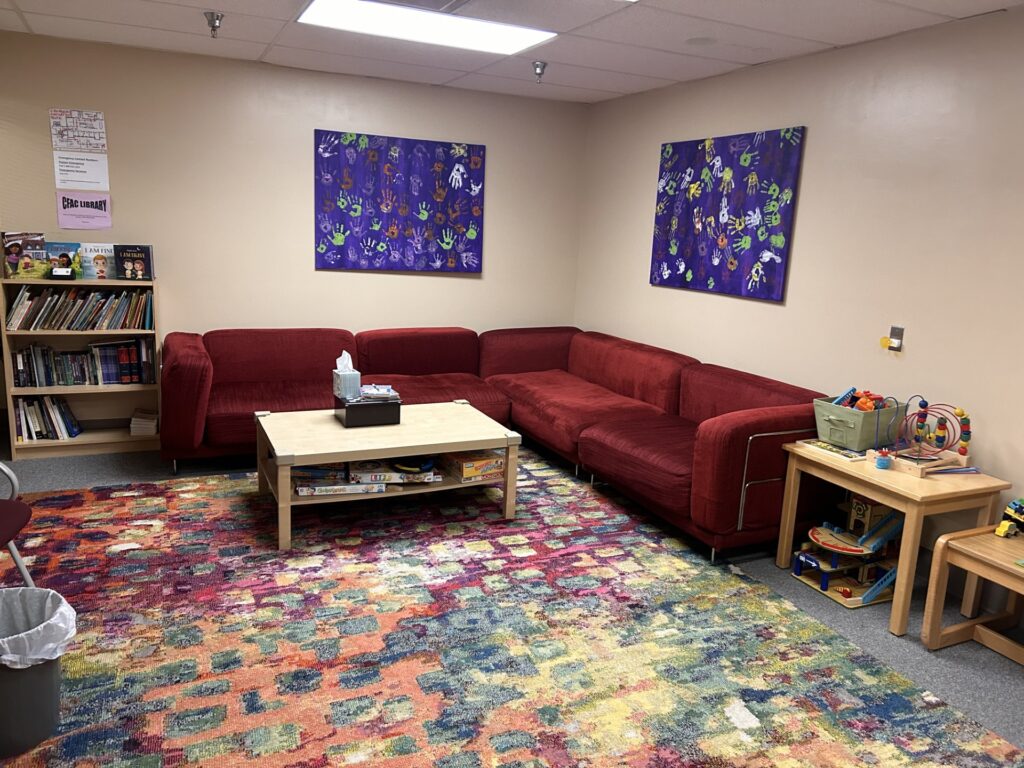
What can I expect during the Forensic Interview at CFAC?
An intake interview will be conducted with both you and your child separately. We have a child-friendly atmosphere and private space that is safe, both physically and psychologically, to make the process as comfortable as possible for your child. The interview process is of a neutral, fact finding nature. Our goals are:
- To do our best to find out what has happened,
- Help you and your family begin to heal from the trauma,
- Work in cooperation with other agencies to protect your child and guide you through this process.
During the interview a family advocate will sit in a separate room with you to offer available services, provide additional resources, and make necessary referrals that will help begin the healing process. Click here to learn more about the role of the Family Advocate. If you would like to contact an advocate at our center please send an email to advocate@childfirstadvocacycenter.org!
Can I talk to my child about what happened before the Interview?
No, please leave that up to our trained staff. If your child brings up the subject and wants to talk about it. Listen to your child without commenting or questioning. Do not coach or pressure your child to talk about what happened. Be sure to reassure your child that he/she will be alright. If your child tells you something that upsets you, contact CFAC for help.
What Do I Tell My Child?
It is okay to tell your child they are coming to CFAC. You might say, “We are going to a place where kids go to talk. The person you will talk to talks to many kids about what has happened to them. It is important to tell the truth. They need to know everything you can remember so we can make sure you are safe. YOU ARE NOT IN ANY TROUBLE”.
Can I Watch the Interview?
No. The team of professionals directly involved with the investigation are the only ones allowed to observe the interview. This is done to reduce the stress on your child and provide a neutral setting for the child and the investigation. Before and after the interview, you will have a chance to meet with the interviewer to discuss questions or concerns you have. During the interview, a team member will be available to answer questions or give you information. The team member can help make referrals for your child and offer you support.
After the Interview
What happens to reports?
A supervisor evaluates each report to decide whether to accept it for intervention. According to Vermont law, a report is accepted if it alleges that:
A person responsible for the child’s welfare…harmed or is harming the child by physical injury, neglect, emotional maltreatment, or abandonment; or; Has placed the child at significant risk of serious physical harm.
Anyone has…sexually abused a child; or placed a child at significant risk of sexual abuse.
For each accepted report, the supervisor then determines the appropriate response for the intervention; Assessment or Investigation.
Assessment Response. We conduct an assessment when:
- an accepted report is not required by law or policy to be investigated
- There is no immediate threat to the child’s safety or well-being; and
- The family may benefit further from available services.
Investigation Response. We conduct an investigation when an accepted report alleges:
- A child has been sexually abused;
- The acts or omissions of a person responsible for a child’s welfare resulted in a child’s death; or
- A person responsible for a child’s welfare:
- Abandoned a child;
- Maliciously punished a child;
- Physically abused a child under 3;
- Physically abused a non-verbal or non-ambulatory child of any age; or
- Allowed a child to be exposed to methamphetamine production.
